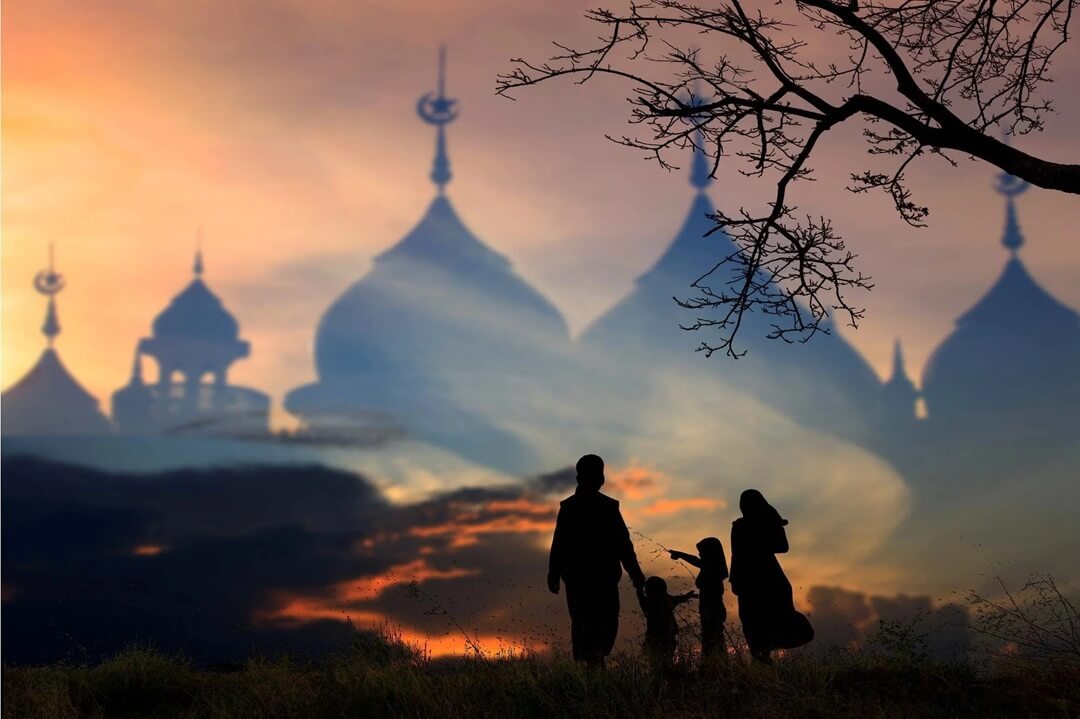Imagine a world where love transcends borders yet is intricately woven with the threads of diverse traditions. In the realm of Muslim marriage counseling, this world is not just a dream but a daily reality. Counselors embark on a transformative journey, navigating the colorful mosaic of cultural differences to forge stronger bonds between couples. Understanding these differences isn’t just important—it’s pivotal in harmonizing two worlds into one harmonious life.
Muslim couples from diverse cultural backgrounds have usually struggled with the celebration of religious festivals. While one partner valued elaborate traditional observances, the other preferred a more low-key approach. This discord highlighted the need for mutual respect and compromise to honor their respective cultural practices while forging a shared celebration that honored both traditions.
Muslim Marriage Counseling for a Happy Married Life
In an intercultural Muslim marriage, differing views on gender roles can cause friction. Seeking counseling or coaching in those respects of both backgrounds becomes crucial. Counselors create a safe space for open dialogue, helping couples understand each other’s cultural values. Through tailored approaches, they guide couples to find common ground, fostering empathy and effective communication. This process strengthens relationships while honoring diverse cultural heritages.
Cultural Understanding in Muslim Marital Guidance
In Muslim marriage counseling, couples sometimes face issues because of their diverse cultural backgrounds. These differences in customs, traditions, and expectations can lead to misunderstandings and problems in communication. Solving these challenges is essential to help couples understand each other better and build stronger, happier relationships while honoring their Islamic beliefs.
What are the Cultural Challenges?
A healthy marital relationship can face unique difficulties and challenges when spouses come from diverse cultural backgrounds. While these differences can add excitement and expose couples to various experiences, they can also lead to stress and conflicts. For instance, couples may have different customs, festivals, traditions, and viewpoints on gender roles, family dynamics, and child-rearing.
The key to overcoming these obstacles is genuinely understanding and appreciating each other’s backgrounds. By bridging cultural gaps and focusing on similarities rather than differences, couples can build stronger relationships. Moreover, counseling or marital coaching also aids couples in navigating cultural differences by fostering mutual understanding and emphasizing the value of shared experiences, ultimately strengthening their bond.
➣ Communication and Misunderstandings
Languages serve as a means of communication and reflect a culture’s morals and values. Multicultural marriages often encounter language barriers, making effective communication difficult. Translations may result in the loss of significant meaning.
One way to improve understanding is for spouses to learn each other’s languages. Counselors and marital coaches can assist couples in finding solutions to language problems, such as language learning or hiring interpreters. Additionally, nonverbal cues can differ across cultures, leading to misunderstandings. Counselors and marital coaches can educate couples about these variations and help them correctly interpret and respond to nonverbal signs.

➣ Learning about Cultural Values and Traditions
Learning about your spouse’s culture and paying attention to their feelings about it is essential. Ask your partner about their culture’s history, core principles, and customs. Show consideration for their feelings about certain aspects of their culture or religion. Counselors and marital coaches provide a safe environment for couples to explore their cultural beliefs and customs.
By recognizing and appreciating each other’s cultural origins, couples can gain a greater awareness of their differences. Counselors and marital coaches can also help couples identify common values that can be the foundation of their relationship, fostering cooperation and strengthening their bond.
➣ Cultivating empathy and perspective-taking
Muslim marriage counseling can facilitate activities that enable couples to understand each other’s cultural viewpoints. Spouses can develop empathy and understanding by experiencing the world through their partner’s eyes. Familiarizing themselves with and participating in each other’s customs can deepen their knowledge of their culture.
Joint exploration of cultural backgrounds can promote a sense of community and respect. Counselors and marital coaches also assist couples in developing a perspective-taking strategy, encouraging them to consider their partner’s cultural heritage when evaluating behaviors or addressing disagreements. This approach fosters empathy and reduces miscommunication.
➣ Style of Conflict Resolution
Muslim marriage counseling helps couples recognize how their backgrounds and cultural norms influence conflict-resolution approaches. Couples can establish common ground and develop effective conflict resolution plans by understanding these influences. Counselors and marital coaches provide couples with conflict-resolution skills that align with both parties’ cultural beliefs. Moreover, it equips couples to address disputes while considering and appreciating each other’s cultural heritage. Disputes while considering and appreciating each other’s cultural heritage.
➣ Communication Gap
Honest and direct communication is crucial for bridging cultural gaps. Addressing concerns openly and promptly can prevent them from causing problems in the future. Counselors and marital coaches assist couples in recognizing how their background and cultural norms influence their approaches to dispute resolution.
Comprehending these influences allows couples to establish common ground and develop powerful conflict-resolution plans. Counselors and marital coaches provide couples with conflict-resolution skills compatible with both partners’ cultural beliefs. This empowers couples to effectively resolve disputes while considering and appreciating each other’s cultural heritage.

Seeking Marital Counseling Services
Counseling and marital coaching are vital in bridging the gap in multicultural marriages. By increasing cultural awareness, promoting efficient communication, and strengthening conflict resolution abilities, Muslim marriage counseling helps couples overcome the challenges posed by cultural differences. Through empathy, respect, and open-mindedness, couples can establish a solid foundation for their multicultural relationship that honors their diverse origins.
➣ Cultural Understanding Fuels Relationship Growth
Muslim couples in intercultural marriages need to seek counseling services or marital coaching tailored to their specific needs. Muslim marriage counselors or marital coaches who understand the cultural nuances and challenges faced by Muslim couples can provide valuable guidance and support. These counselors or marital coaches can help couples navigate the complexities of cultural differences while preserving their relationship’s core values and principles as long as they don’t go against the teachings of Islam.
Furthermore, ongoing education and personal growth are crucial for both partners. By actively learning about each other’s cultures, traditions, and values, couples can continue to deepen their understanding and strengthen their bond. This can involve participating in cultural events, engaging with community organizations, and seeking opportunities to explore further and appreciate each other’s cultural heritage.
➣ Thriving Through Embracing Diversity
Bridging cultural gaps in a marriage requires both partners’ commitment and effort. By embracing diversity, fostering open and honest communication, and seeking professional guidance, Muslim couples can navigate the challenges and create a harmonious and fulfilling marital life.
In a world where cultural mixing and diversity are becoming increasingly prevalent, addressing cultural challenges in Muslim marriage counseling or marital coaching is essential for fostering understanding, harmony, and love in intercultural relationships. Let us embrace the richness of our differences and work towards a future where cultural diversity is celebrated and cherished within the context of Muslim marriages.
Harmonize Cultures, Strengthen Love: Join Ihsan Coaching Today
Ihsan Coaching’s tailored marital guidance for Muslim couples in intercultural marriages provides specialized support to navigate cultural complexities. Our approach honors Islamic teachings while fostering understanding and unity within diverse cultural contexts. Join us in celebrating diversity while nurturing a harmonious and fulfilling marital journey.

